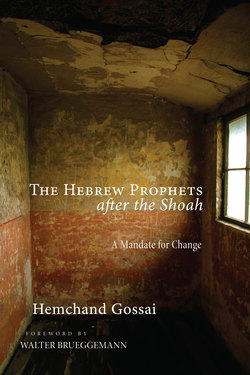Читать книгу The Hebrew Prophets after the Shoah - Hemchand Gossai - Страница 5
На сайте Литреса книга снята с продажи.
Foreword
ОглавлениеHemchand Gossai has written an exposition of the ancient prophets that voices an immediate contemporaneity from their message. The term “mandate” in the subtitle is exactly correct; the book reflects the urgency of the prophetic message that pertains to our contemporary social crisis. With responsible imagination, Gossai has transposed the dynamics of the ancient prophets from uncredentialed poets vis-à-vis the numbed urban elites in ancient Jerusalem into a textual tradition of ethical imagination vis-à-vis the self-destructive conduct of the US empire. That transposition is in my view compelling, and the “vis-à-vis” of opposition of the textual tradition to the empire is on target. Gossai exhibits a telling interpretive gift in his witness to the Promethean struggle for truth that is under way in our society.
One version of truth is that offered by the empire in the midst of which we live. Gossai notes many marks of that empire, but here I will single out three for notice. First the empire is rooted in a deep and unexamined conviction about exceptionalism. That powerful notion holds that the United States is chosen to be the carrier of economic freedom that gives it a pass on moral questions. Second, the enactment of that exceptionalism, in an imperial mode turns out, as it does with all empires, to be an extraction of wealth from the occupied territories to the “Homeland,” as in “Homeland Security.” This extraction depends upon an immense military investment to enforce control and domination. Third, Gossai notes that the various articulations of empire culminate in violence that is perpetrated against any vulnerable outsider to the orbit of privilege that the imperial effort is designed to serve.
In the face of this force of exceptionalism-cum-military-violence, Gossai places the prophetic tradition and offers a textual interpretation that is well-grounded but that surges with contemporeneity. He notices that in that ancient world such voices were readily slotted as “madmen,” that is, those who did not subscribe to the force of domination, regularly articulated in protective religious phrasing, were simply crazy people not to be taken seriously. But of course his exegesis will show not only that the “madmen” of ancient Israel were impressively sane, but perceptive and courageous in articulating an alternative truth that exposed the pretend-truth of the empire. The force of the book is to review that prophetic tradition, in its textual expression and in its contemporary embodiment, as truth-telling that is indispensible for the health and well-being of our body politic.
This Promethean struggle for truth is now, as always, an uneven contest. But Gossai shows how and why the articulation of an alternative truth continues and must continue to be voiced. I am currently reading the biography of Sumner Welles written by his son Benjamin. Welles is a now forgotten diplomat of the US State Department in mid-twentieth century who served as Undersecretary of State under Franklin Roosevelt. Though his brilliant career ended early and tragically, he developed unparalleled expertise concerning US policy in Central America. I mention his life and work because at the height of his influence he published an extended study of US policy in Central America. With knowing irony, he titled his study Naboth’s Vineyard, thus a deliberate allusion to the Elijah narrative of 1 Kings 21 that Gossai cites to such good advantage. That ancient narrative concerns the action of the powerful queen and king in Israel (Jezebel and Ahab) who usurped the land of a vulnerable peasant farmer. Welles intends to expose the usurpatious policies of the United States that were allied with the aggressive policies of the “fruit companies” who preyed upon the poor in Central America in exploitative ways. The linkage between ancient text and Welles’s policy statement is a telling case in which the prophetic text functions as a truth-teller in a venue of power. It is this old truth in the face of contemporary false truth that Gossai champions.
Gossai’s analysis is “post-Shoah” in the sense that the Shoah has caused the ungluing of all old assumptions and all old certitudes—social, political, and religious. That new context creates new responsibilities and new possibilities, and waits for new acts of imagination. The book is a welcome harbinger of new acts of imagination that will permit the old tradition to have its say. It will surely turn out in our context, as in the ancient context, that the purveyors of empire are indeed the madmen who host destruction. This Promethean contest here continues with boldness!
Walter Brueggemann
Columbia Theological Seminary
August 26, 2013
